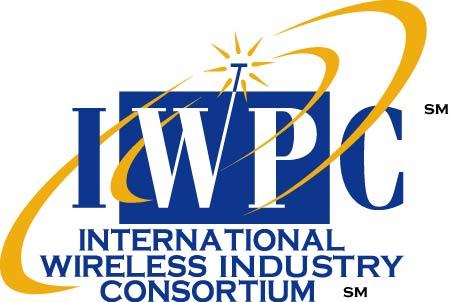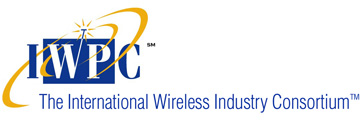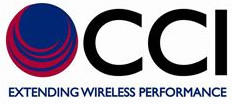Evolving Mobile Transport Networks Toward 5G
Considering 4G/5G rationalization, mesh networking. Front-haul, Backhaul, X-haul, Fiber, mmWave Radio and the impact of Edge Computing
Hosted by:
When
December 4-6, 2017
Introduction
In order to meet demand for higher traffic loads today and future 5G services, more is required of backhaul and fronthaul, to prevent transport from becoming a bottleneck which limits capacity and performance gains in the RAN and the core. Densification, C-RAN, 5G and the availability of mmW spectrum bands, so backhaul and fronthaul have to adapt in a cost-effective way to offer carriers enough flexibility to manage cost, performance and resource availability trade-offs. This workshop provides a forum for debate regarding drivers for transport change from C-RAN deployments, densification and future 5G networks
Workshop Goals
- Explore the evolution of transport to Fronthaul and XHaul
- Understand potential for interface interoperability and evolution
- Access how virtualization and SDN will impact transport systems
- Discuss and debate options, trade-offs and functional splits for efficient transport systems
Agenda
|
DAY 1 Monday 7:00 PM |
Registration and Evening Reception |
Registration and reception at hotel |
||||
|
DAY 2 Tuesday 7:30 AM
|
Registration and Breakfast |
|||||
|
8:30 AM |
Welcome and Introductions
|
 |
||||
9:00 AM |
Keynote
|
Opportunities & Challenges for Wireless Fronthaul/Backhaul
DMTS
|
||||
|
10:00 AM |
Networking Break |
|||||
|
10:40 AM |
Service Provider Perspectives
|
Architectural Considerations on the road to 5G
LMTS, Small Cell Platforms & Strategy
|
||||
|
12:00 Noon |
Networking Lunch |
|||||
|
1:00 PM |
OEM Perspectives
|
Reduce RAN Infrastructure Cost by Leveraging 5G RAN Transport Technologies
Director, Business Development
High-Availability Transport design for C-RAN architectures – how Available does it really need to be?
Senior Staff Systems Engineer
|
||||
|
3:00 PM |
Networking Break |
|||||
|
3:40 PM |
OEM Perspectives, continued
|
Efficient Fronthaul for Next Generation 4G and 5G Networks
Chairman of Board
Fronthaul Choices in Disaggregated 5G Base Stations
Director
|
||||
|
5:00 PM |
End of Day Panel |
|
||||
|
5:45 PM |
Adjourn |
|||||
|
7:00 PM |
Networking Dinner - Silicon Valley Capital Club |
|
||||
|
DAY 3 Wednesday 7:30 AM |
Registration and Breakfast |
|||||
|
8:30 AM |
OEM/System Perspectives
|
Software Defined Metro Backhaul
Director, Product Management
Sub 6GHz Suitability for 5G Fixed Wireless
VP, Business Development
|
||||
|
10:00 AM |
Networking Break |
|||||
|
10:40 AM |
Technology Enablers
|
Flexible xHaul Architectures
Principal Packet Strategy Manager
Synchronizing the Future - The Sync Challenge Facing 5G
Director, Marketing and Business Development
|
||||
|
12:00 Noon |
Networking Lunch |
|||||
|
1:00 PM |
Technology Enablers, continued |
mmWave, Enabling 5G transport at the Network Edge
Principal Engineer
Overcoming the Dispersion Challenge on the Road to 5G
Product Line Manager
Evolution of Fronthaul Networks and Test Applications
Senior Manager, PLM
|
||||
|
3:00 PM |
Networking Break |
|||||
3:40 PM |
Closing Panel |
|
||||
5:00 PM |
Adjourn |
|
||||
7:00 PM |
Evening reception for C-RAN and Low Power Architectures Preparing the Way for 5G workshop |
|
FAQs
- What is the deadline for presentation/handout materials?
- What can I do to prepare for speaking an at IWPC workshop?
- Who are the attendees?
- What are the costs/registrations fees?
- Hotel information?
- What are the travel options from the airport to the hotel?
- Are there any audiovisual requirements?
- Will business cards be collected?
- What is the dress code?
- How will handout materials be provided?
- What is the deadline for
presentation/handout materials?
Deadline for electronic version of presentation/handout materials: Monday, November 27th, 2017
- What can I do to prepare for speaking an at IWPC workshop?
Click on the link below for a short video guide regarding preparing for and improving your IWPC presentation:
- Who are the attendees?
- We do not permit the Press.
- We do not permit Analysts.
- We do not permit Consultants.
- We do not permit 3rd party sales reps.
- We only permit "first hand knowledge experts" in business and technology issues, prepared to contribute to the discussion.
- What are the costs/registrations fees?
ALL Hosts, Speakers, Panel Members and Attendees will be asked to cover out-of-pocket workshop costs such as conference room costs, food (Social Reception plus First Day breakfast/lunch/dinner plus Second Day breakfast/lunch plus Breaks), audio/visual costs, etc.
These costs will be $985 (USD) per person. (For IWPC Members only.)
ALL Hosts, Speakers, Panel Members and Attendees will be asked to pay this fee in advance with either Visa, MasterCard, American Express, cash, personal check or business check. Make checks payable to IWPC.
- Hotel information?
Hilton San Jose
300 Almaden Blvd.
San Jose, CA 95110
Phone: 408-287-2100
Hotel WebsiteThe IWPC room block rate is $269/night. The deadline for hotel reservations is Friday, November 10, 2017. After that date, rooms cannot be guaranteed at the IWPC rate. You can make your reservations on-line at:
http://www.hilton.com/en/hi/groups/personalized/S/SJCSHHF-IWP-20171204/index.jhtml?WT.mc_id=POG
- What are the travel options from the airport to the hotel?
http://www3.hilton.com/en/hotels/california/hilton-san-jose-SJCSHHF/maps-directions/index.html
- Are there any audiovisual requirements?
A Computer Projector will be available for the speakers.
In addition, we audiotape all presentations and the interactive discussions. Post workshop, presentations are made available to IWPC Members on the IWPC WEB site, along with “recordings” of all presentations and panel sessions.
- Will business cards be collected?
Business cards will be collected at the door from all attendees. We will make copies of these cards, which will be available to all who provided a business card.
- What is the dress code?
Business casual suggested. No ties, please!
- How will handout materials be provided?
For ALL IWPC members:
All IWPC members are invited to submit materials to be included in the online workshop folder in the IWPC Research Library. This should NOT BE SALES MATERIALS. Rather, we suggest it contain technical information about your technology as it relates to the workshop topics.
For all companies who will be making a presentation at the Workshop:
You are invited to submit an advance copy of your presentation, complete with graphics and illustrations.
These materials will be included on the IWPC website Research Library.
Please submit these materials either by email, as a Word for Windows file, Power Point files or PDF files.
- Go to www.iwpc.org
- Click on IWPC Activities Tab
- Under Workshop: Evolving Mobile Transport Networks Toward 5G
- Click on Submit Presentation Proposal. Complete the form and attach your presentation.
- Once we receive your presentation we will send an email confirmation.
AS BACKUP, PLEASE BRING AN ELECTRONIC COPY USB STICK WITH YOU!







